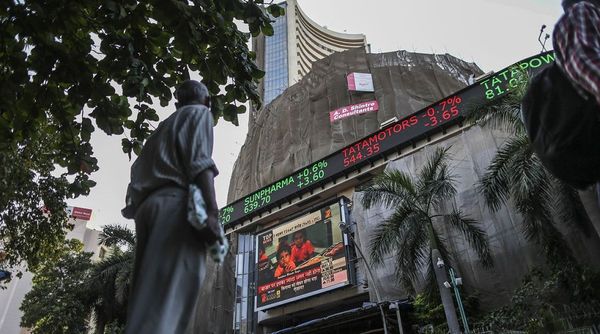India: Does A Buyback Flurry Point To Bottoming Of Markets?

With the Nifty 500 index falling by nearly 30% in the past two months, an oft-asked question in investors’ minds is whether the markets have bottomed out. There appears to be some support for this theory, going by an increase in the number of buyback announcements by companies, as well as share purchases by promoters in their companies.
In less than three months, about 17 companies have announced buyback of shares. Companies such as Sun Pharmaceuticals Ltd, Dalmia Bharat Ltd, Thomas Cook Ltd, Emami Ltd and Granules India Ltd have announced buybacks at a 15-72% premium to their prevailing market price.
That’s not all. Promoters of around 200 companies from the Nifty 500 index have lapped up shares from the open market to increase stakes in their companies. Tata Sons Ltd raised its stake across a host of group companies. Family groups such as Bajaj and Godrej, too, hiked stakes in group companies. Market experts reckon that the trend may strengthen if markets continue to fall.
From an investors’ perspective, share purchases by companies as well as promoters are a positive sign, because these stakeholders are best informed about a company’s underlying fundamentals.
With all the uncertainty post the spread of Covid-19, investors are struggling to figure out where things will settle in terms of impact on earnings and return ratios. To that extent, the positivity being displayed by some promoter groups and companies is welcome.
Since most buybacks have been announced very recently, it’s early yet to ascertain whether investor sentiment has improved for the stocks that announced buybacks. According to Nilesh Shah, managing director of Kotak Mahindra AMC Ltd, “Promoters and company managements are taking cognisance of the fall in their company stock prices. Buybacks during times of market meltdown are a sign that the shares are trading below their fair value.”
Michael Mauboussin, a Wall Street investment strategist who is considered an expert on buybacks, has pointed out in his research, “As a general rule, a company should only repurchase its shares when they are trading below expected value and when no other better investment opportunities are available.” When a company buys back shares that are undervalued, shareholders who remain with the firm benefit, he adds.
To that extent, companies announcing buybacks currently appear to be doing a service to their continuing shareholders by buying back shares at beaten down valuations, rather than when they were at lofty valuations. But there aren’t enough examples yet to call this a trend. In India, buybacks rose sharply in the preceding three fiscal years, but fell in FY20, after the government imposed a buyback tax.
Also, in general, research by Mauboussin shows that buybacks tend to decrease in bear markets and increase when share prices are rising.
“Companies tend to buy back stock when the market is up and refrain when the market is down,” Mauboussin pointed out in his research on data from the time of the global financial crisis. He found that buybacks (in the US markets) dropped more than 75% from 2007 to 2009, whereas dividends—another form of returning cash to shareholders—declined only 20% from 2007 to 2009.
In India, the trend is likely to be skewed because of tax considerations, as the government has once again tinkered with taxes related to dividend payments.
Nevertheless, it’s fair to say that investors can take some comfort in stocks where companies and promoters are buying shares at this point. They are clearly a bid by promoters to help restore investor faith in the company.
“The drop in stock prices (now) is solely linked to COVID-19 and not directly linked to intrinsic business fundamentals. Companies are confident that valuations would improve once clouds of gloom clear up,” says Pranav Haldea, managing director of PRIME Database group. During the global financial crisis, the strong pull-back in Nifty, which soared 72% in 2009 as the Lehman issue was resolved, underscored this.
Having said all this, it is also likely that promoters and company managements are equally clueless about the extent of the impact of Covid-19. The buybacks, then, may provide some comfort, but the ultimate direction of the stock will depend on how far economic growth and earnings are impacted.
This article was first published on livemint.com.
Indian Food Delivery Unicorn Zomato Likely To File For IPO Next Month
Food delivery unicorn Zomato is planning to file for an Initial Public Offering (IPO) by April which could raise $65... Read more
Vietnams Bamboo Airways Aims Third-quarter Listing With Market Cap Of $2.73b
Vietnam’s startup Bamboo Airways said on Friday it aimed to list its shares on a local stock exchange in the thi... Read more
Didi Chuxing Advances IPO Plans To Next Quarter, Targets $62b Valuation
Chinese ride-hailing giant Didi Chuxing Technology Co. is accelerating plans for an initial public offering to as early... Read more
Warburg-backed Kalyan Jewellers IPO Loses Shine, Sees Tepid Demand
Kalyan Jewellers India Ltd’s initial public offering was oversubscribed by just 1.28 times on Thursday, a sign of tep... Read more
Chinese E-commerce Platform DMall Hires Banks For Over $500m US IPO
Chinese e-commerce platform Dmall (Beijing) E-commerce Co has hired Bank of America, Goldman Sachs and JPMorgan for a... Read more
Tencent-backed Chinese Software Firm Tuya Eyes $915m In US IPO
Tuya Inc., a software company backed by New Enterprise Associates and Tencent Holdings Ltd., is on track to raise $915 ... Read more

